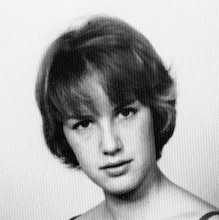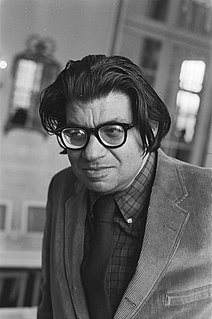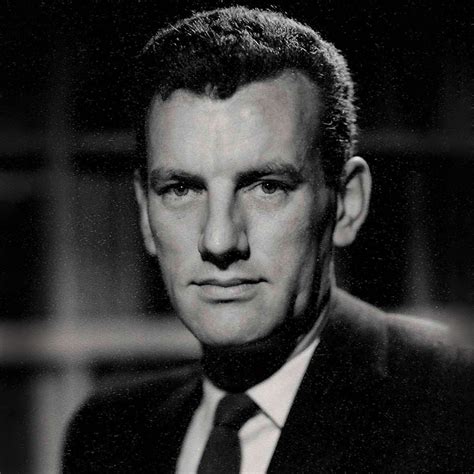A Quote by Adyashanti
We can't have an idea of what life should look like, about how spirit should be manifesting as our very life, because all of those ideas would just be products of the past - something we learned, imagined, or desired. Once again, we find ourselves back in the unknown - not in the idea of the unknown, but in the lived reality of it. It's the mind humbled, on its knees, with bare feet and free of the known.
Related Quotes
The Tipping Point is the biography of an idea, and the idea is very simple. It is that the best way to understand the emergence of fashion trends, the ebb and flow of crime waves, or, for that matter, the transformation of unknown books into bestsellers, or the rise of teenage smoking, or the phenomena of word of mouth, or any number of the other mysterious changes that mark everyday life is to think of them as epidemics. Ideas and products and messages and behaviors spread just like viruses do.
I always thought the editor should cut the film and so I'll come in and look at the movie. Just because that's the only way I can really see the ideas of the editor, it's really working together. Yes it's a hierarchy, yes I'm the boss, but I like to see and to think about the idea, and it's about us asking, 'do we have to say that?' and, 'how do we make it there?' So it's advising the editor, it's very give and take, it's very free, but in the end, it's wonderful once you get through the first couple of cuts.
Practice can be stated very simply. It is moving from a life of hurting myself and others to a life of not hurting myself and others. That seems so simple-except when we substitute for real practice some idea that we should be different or better than we are, or that our lives should be different from the way they are. When we substitute our ideas about what should be (such notions as "I should not be angry or confused or unwilling") for our life as it truly is, then we're off base and our practice is barren.
[Photographer Julian Wasser] had this great idea that I should play chess naked with Marcel Duchamp and it seem to be such a great idea that it was just like the best idea I'd ever heard in my life. It was like a great idea. I mean, it was - Not only was it vengeance, it was art, and it was, like, a great idea. And even if it didn't get any vengeance, it would still turn out okay with me because, you know, I would be sort of immortalized.
To me, I took a militant attitude towards sounds. I wanted sounds to be a metaphor, that they could be as free as a human being might be free. That was my idea about sound. It still is, that they should breathe ... not to be used for the vested interest of an idea. I feel that music should have no vested interests, that you shouldn't know how it's made, that you shouldn't know if there's a system, that you shouldn't know anything about it ... except that it's some kind of life force that to some degree really changes your life ... if you're into it.
Well, I do write on political and social issues and the idea that one shouldn't - or the idea that we should censor ourselves - doesn't really work for me because it would be doing the government's job for them. And I'm not interested in doing that. I think what we need very much in Pakistan is to be able to discuss the corruption and the violence that really colours most of our life here.
The essential contradiction at the heart of America's problems: if we were a democracy and if we truly enjoyed free speech, we would be able to study and speak about the CIA. We would confront our institutionalized racism and sadism. But we can't, and so our agency's history remains unknown, which in turn means we have no idea who we are, as individuals or as a nation. We imagine ourselves to be things we are not. Our leaders know bits and pieces of the truth, but they cease being leaders once they begin to talk about the truly evil things the CIA is doing.
I think people resist freedom because they're afraid of the unknown. But it's ironic....That unknown was once very well known. It's where our souls belong....The only solution is to confront them - confront yourself - with the greatest fear imaginable. Expose yourself to your deepest fear. After that, fear has no power, and fear of freedom shrinks and vanishes. You are free.
Without uncertainty and the unknown, life is just a stale repetition of outworn memories. You become the victim of the past, and your tormentor today is yourself left over from yesterday. Relinquish your attachment to the known, step into the unknown, and you will step into the field of all possibilities.
We should be empty of clutching, empty of self, empty of all the old ideas of substance. We should be ‘lost in the objectivity of world-love’, as I have elsewhere put it; or, perhaps better, we should let ourselves be only an empty space filled with brightness. Life lived like that is ‘eternal’ life.
You know the known, so go a little into the unknown. The mind that is caught up in the known - extended a little beyond reason. The moment you go beyond , you move in the soul. Releasing the bondage of your mind to extend further, reach the unknown a little more. The further you go, you realize that the known is limited and the unknown is vast.
We are unknown to ourselves, we men of knowledge - and with good reason. We have never sought ourselves - how could it happen that we should ever find ourselves? It has rightly been said: "Where your treasure is, there will your heart be also"; our treasure is where the beehives of our knowledge are.






































